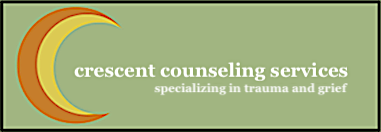"For me, the first task of therapy is to create understanding and trust in a safe space." ~Lara Palay

"For me, the first task of therapy is to create understanding and trust in a safe space." ~Lara Palay

Lara Palay received her bachelor's in English Literature before completing her Master of Social Work degree from the Ohio State University in 1998, with an emphasis in clinical practice and research. She has worked in community mental health, partial hospitalization and other settings since 1988 and has maintained her private practice, specializing in grief, loss and trauma for over twenty years.
For more than a decade Lara was adjunct faculty of the Ohio State University College of Social Work. She taught graduate courses in clinical social work, diagnosis, trauma, grief and loss, and integrating Eastern and Western clinical approaches.
Lara also served as liaison between the Ohio Department of Mental Health and Addictive Services (OMHAS) and the Ohio Department of Developmental Disabilities (DODD). In 2015, Lara co-founded Aldridge Palay Group, a consulting firm specializing in mission driven organizations in the human services sector. She speaks around the country and internationally on trauma, grief and loss and developmental disabilities. Some of her writings on these and related topics can be viewed on Aldridge Palay Consulting website.
"For me, the first task of therapy is to create understanding and trust in a safe space. My approach is psychodynamic but eclectic, with an emphasis on attachment, self-awareness and mind-body connection. I integrate mindfulness, meaning and spirituality into much of my work.
"Working with trauma and grief is often at the heart of psychotherapy. My approach to trauma is present-based, and I focus on the brain-body connection. It's vital to me to address the shame and isolation that trauma creates, and to access the innate healing potential I believe all human beings possess. Each person's path to trauma healing is unique to them, and my role is to support and strengthen that progress, not to dictate or control it. With trauma, it's critical that the pace you need is the pace that guides our work, not the other way around.
“I believe that grief, while sometimes devastating, is nevertheless a natural and profound human experience, not an illness to be treated. It can be an extraordinarily isolating experience, and friends and family of a bereaved person may feel overwhelmed. This can lead them to give messages, subtle or unsubtle, that grief should be over quickly and dealt with in one particular, right way. There is no one ‘right’ way to grieve. Some grief may ease over time, but it is never forgotten or left behind. When a death is unexpected, or traumatic, or happens to a child, grief can be even harder. Counseling can help people to feel less alone, to recognize that they are not ‘going crazy’, and to feel understood and supported. Complications affecting grief such as trauma or guilt can also be identified and addressed in treatment, so that grief can again proceed naturally."